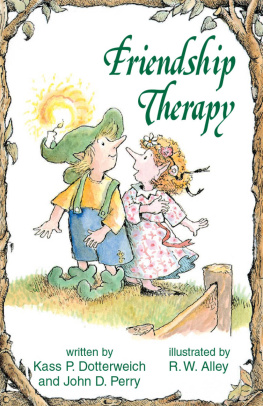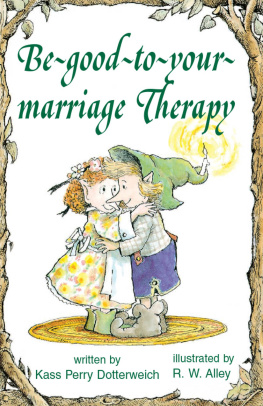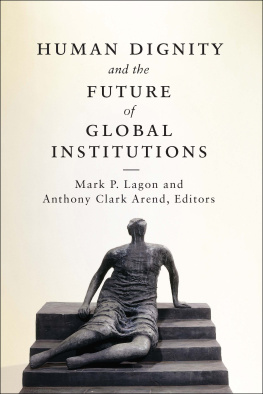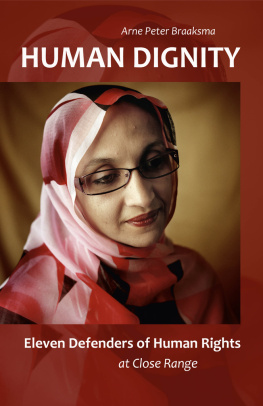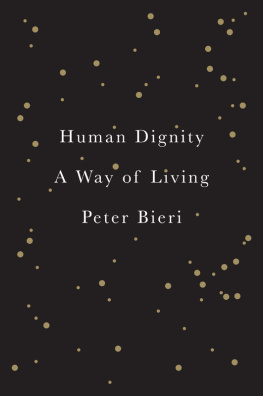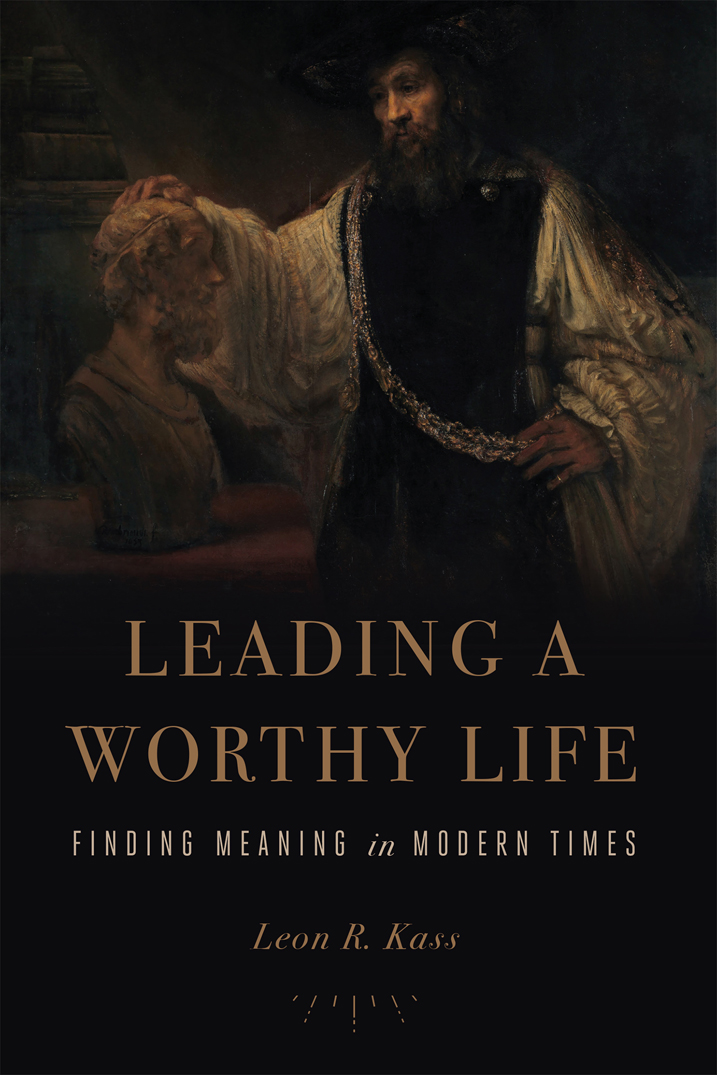

CONTENTS
Table of Contents
Guide
IN MEMORIAM
Amy Apfel Kass
Woman of Valor, Teacher of Life
IN HOPE
For Our Grandchildren
M AY YOU LIVE in interesting times! This ancient Chinese curse appears to have landed on us we whose lives have spanned the end of the twentieth century and the beginning of the new millennium. In addition to the usual run of crises, foreign and domestic, we face genuinely novel prospects both for good and for ill, the harms often emerging tragically as unavoidable consequences of the benefits. Ours is the age of atomic power but also of nuclear proliferation, of globalized trade but also worldwide terrorism, of instant communication but also fragmented communities, of free association but also marital failure, of limitless mobility but also homogenized destinations, of open borders but also confused identities, of astounding medical advances but also greater worries about health, of longer and more vigorous lives but also protracted and more miserable deaths, of unprecedented freedom and prosperity but also remarkable anxiety about our future, both personal and national. In our age of heightened expectations, many Americans fear that their childrens lives will be less free, less prosperous, or less fulfilling than their own, a fear that is shared by the young people themselves. Like their forebears, our youth still harbor desires for a worthy life. They still hope to find meaning in their lives and to live a life that makes sense. But they are increasingly confused about what a worthy life might look like, and about how they might be able to live one.
In less interesting times, a dominant and confident culture was able to provide many young people with authoritative guidance for how to live. Religious traditions and inherited customs and mores pointed the way to a good life. Adults, quite comfortable with their moral authority, were not stingy with their praise and blame, reward and punishment, nor did they neglect the effort to model decent conduct for the young to follow. In the postWorld War II years of my boyhood, the prevailing culture took pains to turn children into grown-ups. It offered guidance for finding work and vocation, customs of courtship for finding a suitable spouse, and a plethora of vibrant local institutions and associations religious, fraternal, social, political, charitable, cultural for finding meaningful participation in civic and communal life. The institutions of higher learning proudly believed in light and truth, and were pleased to initiate the next generation into the intellectual and artistic treasures of the West. To be sure, those less interesting times also offered fewer opportunities for women and minorities and less room for individual divergence from the norm, and the more imaginative and independent people among us sometimes felt stifled. But there were at least norms to be rebelled against, and most people acquired at least some beginning ideas about what makes a life worth living.
No longer. Young people are now at sea regarding work, family, and civic identity. Authority is out to lunch. Courtship has disappeared. No one talks about work as vocation. The true, the good, and the beautiful have few defenders. Irony is in the saddle, and the higher cynicism mocks any innocent love of wisdom or love of country. The things we used to take for granted have become, at best, open questions. The persons and institutions to which we once looked for guidance have ceased to offer it successfully. Today, we are supercompetent when it comes to efficiency, utility, speed, convenience, and getting ahead in the world; but we are at a loss concerning what its all for. This lack of cultural and moral confidence about what makes a life worth living is perhaps the deepest curse of living in our interesting time.
I do not mean to imply that my fellow Americans are living empty or meaningless lives. Far from it. Many people today are fulfilled in their work, their families, their communities, and their religious devotions. But they live their worthy lives in the absence of strong and confident cultural support. Indeed, they do so in the face of relentless attacks from intellectuals, popular culture, and media celebrities on their core beliefs, practices, and institutions. We are awash in cynicism about work, love, marriage, government, and seeking the truth and, truth to tell, not without cause.
Other peoples, in earlier times and places, have also been cursed to live in interesting times. Great nations have experienced crises of confidence, whether from war weariness, declining religious beliefs, or cultural disarray. Consider ancient Athens, for example, a city-state that came to prominence in the Persian Wars, after which it found itself in possession of an empire, more by default than by design. Athens predominated for several decades, only to enter upon interesting times as a consequence of the Peloponnesian War with Sparta and her allies, the plague of Athens, and a decline in manners and morals at home. Cynical public intellectuals and wise guys (my translation of sophistes) ran around undermining belief in the gods and in traditional mores, also teaching the young how to make the weaker argument appear the stronger. The conservative elders their equivalent of our American Legion looked back nostalgically to the glory days of Marathon, even as demagogues swayed the multitude and as public speech and morals headed for the sewer.
Yet precisely because the old orthodoxies were crumbling, these troubled times in Athens offered great opportunities for renewal and growth, at least for individuals. It was then that Socrates, calling philosophy down to earth from its preoccupation with the heavens, made famous the question How to live? He gathered around him the finest youths, who warmed to his insistence that the unexamined life was not worth living. Instead of receiving authoritative answers, his students were encouraged to discover genuine and weighty questions, and to undertake real quests in search of a worthy and flourishing life. Never mind that the city fathers, mistaking Socrates for one of the subversive Sophists, convicted and executed him for impiety and for corrupting the young; his influence lives to the present day as the supreme model of a thoughtful life, thanks to the divine Plato, who commemorated the life of his teacher in his famous dialogues. Though Socrates professed no substantive teaching, he exemplified and still exemplifies what it means to live thoughtfully and worthily, fully open to the world, fully present to his friends and his city. His example underscores the opportunity that we still enjoy today, in part because we too live in interesting and open-ended times, to seek and find a worthy life for ourselves. We can begin by rejecting the despair and cynicism that often surround us and cloud our vision.
This book is written in a Socratic spirit. Recognizing both the fatigue of our inherited ways and the opportunities it opens up, I aim to encourage our flagging moral confidence by illuminating key aspects of a worthy life that are still available to us and by defending them against some of their enemies. I hope to be helpful to both secular and religious readers, to people who are looking for meaning on their own and to people who are looking to deepen what they may have been taught or to square it with the spirit of our times.



